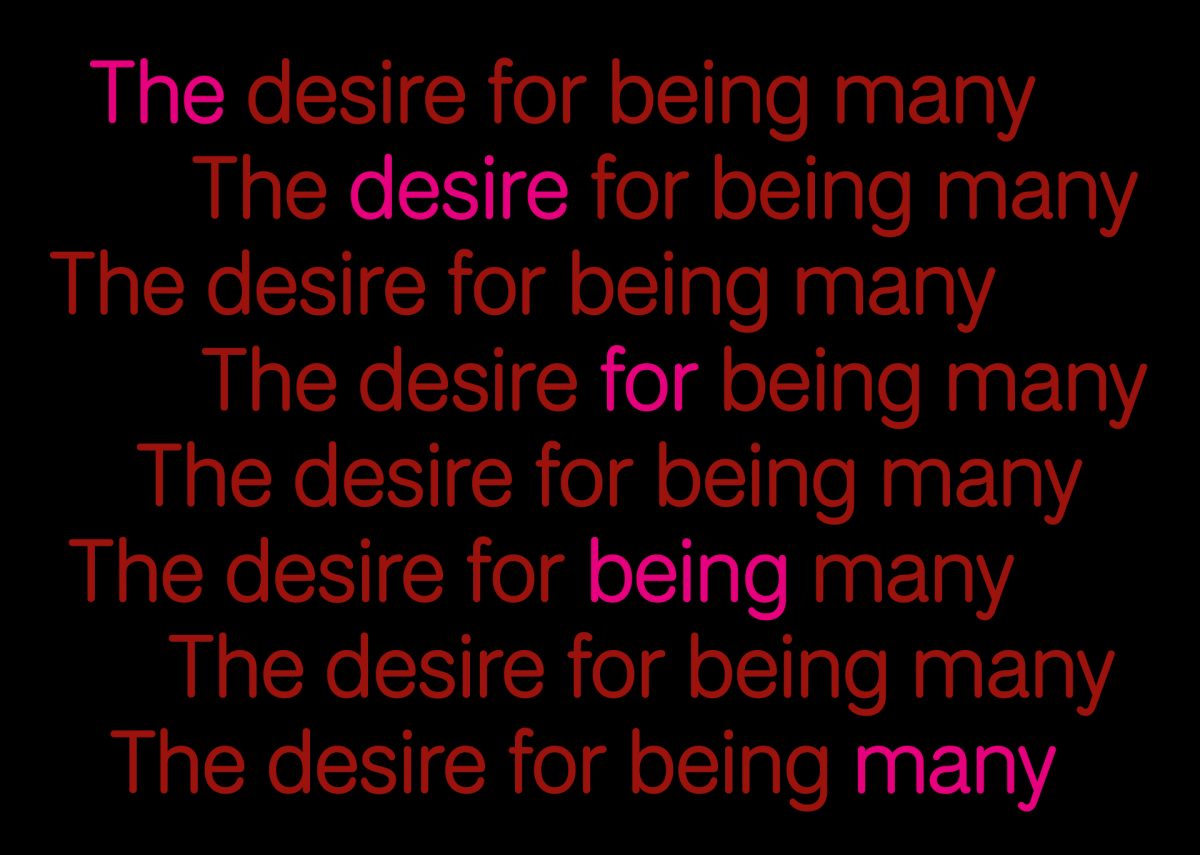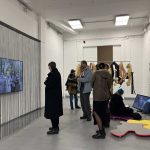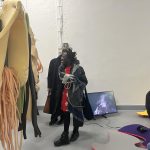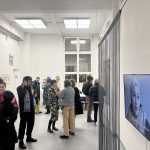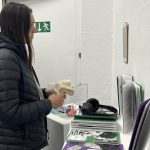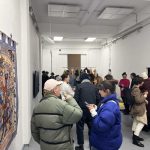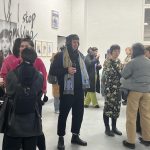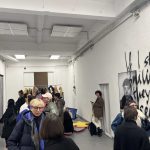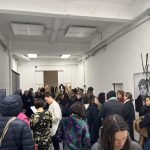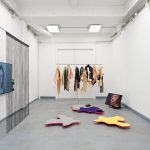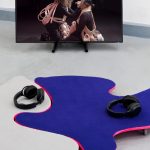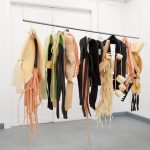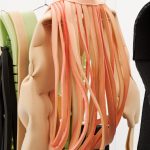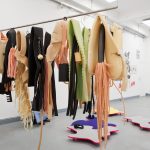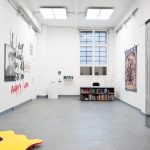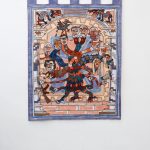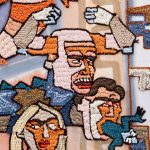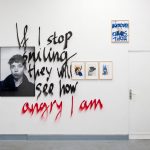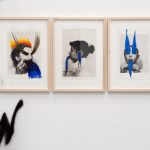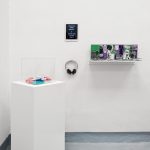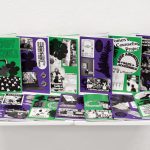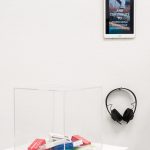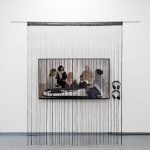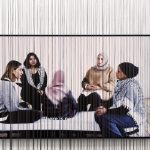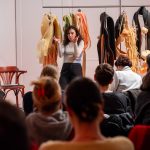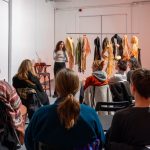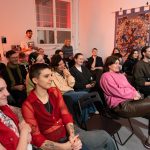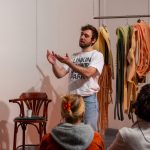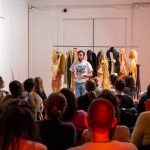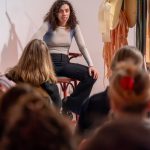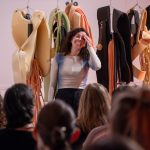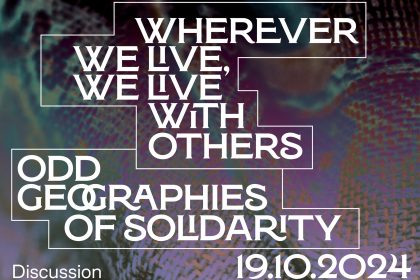Exhibition series The desire for being many
Group exhibition with Ana de Almeida & Alicja Rogalska & Vanja Smiljanić, Alexandra Ivanciu & Jolanta Nowaczyk, Lillian Morrissey, Mila Panić, Marta Popivoda & Pary El-Qalqili
Opening 22 Nov. 2025, 17:00-21:00
23 Nov-20 Dec 2025
Wed-Sat 16:00-19:00
Under the title The desire for being many, the curators from Neun Kelche and alpha nova & galerie futura, together with artist Lillian Morrissey, will present a joint exhibition across multiple venues and a programme of events from October to December 2025. Platforming intersectional FLINTA* artistic and critical approaches, the project addresses the pressing issue of reactionary, anti-feminist and LGBTQIA+-phobic backlash in contemporary right-wing politics.
The project The desire for being many not only responds to these dynamics but also seeks to create counter-publics and strengthen alliances in the spirit of author, philosopher and activist Ewa Majewska. Artists and activists in Berlin will contribute works shaped by their transnational backgrounds, forming a polyphonic network of resistance against Backlash 2.0.
Nevertheless, this is only a beginning. To counter these global processes, many further voices (still) need to be included. The desire for being many therefore understands itself as a starting point, as an open and expandable undertaking that will be continued and diversified in future chapters.
Kick-Off at Gunda-Werner-Institut: 22.10.25 // The desire for being many – Strategies of Weak Resistance // Panel Talk with Ewa Majewska, Alexandra Ivanciu, Jolanta Nowaczyk and Tarek Shukrallah, moderated by Sandra Ho
->audio documentation
Exhibition at Neun Kelche: 26.10.-20.12.25 with works by Rebekka Benzenberg, Ren Loren Britton, Yishay Garbasz, Oska Gutheil, Alexandra Ivanciu & Jolanta Nowaczyk, Jeanna Kolesova, Gosia Lehmann.
Exhibition at Solaris: 9.11.-7.12.25 with works by Melo Börner, Alexandra Ivanciu & Jolanta Nowaczyk, Kaj Osteroth, Maria Thrän
More info: www.thedesireforbeingmany.de
EVENTS
Jokes
Stand-up Comedy Performance by Mila Panić (in English)
10 Dec 2025 // 19:00
Humour is often used to critique, subvert, and change dominant cultural narratives. Yet the sound of active laughter is very rarely heard in the context of an art exhibition. Through visual art and stand-up comedy, Mila Panić uses humour to create liberating moments, laugh and engage with topics such as selective empathy, politics, war, displacement or everyday situations.
ARTISTS
The interdisciplinary artists Ana de Almeida (she/her), Alicja Rogalska (she/her), and Vanja Smiljanić (she/her) are the collaborative writers and developers of the feminist speculative LARP (Live Action Role-Playing) game NOVA, originally commissioned by VBKÖ and Kunsthalle Wien in 2019 and 2020 respectively. NOVA specifically invites feminist and queer activists to collectively improvise and create a piece of feminist political fiction – a future world free from patriarchal oppression. The project aims to create a speculative space that allows the participants to share survival strategies, exercise solidarity and intersectionality, create support networks and form new alliances which are radically inclusive, self-governing and heterogeneous in their forms of coexistence and social organization. At alpha nova & galerie futura, the artists present NOVA as a multi-part installation featuring the edited video documentation of the LARP, along with individually designed costumes and floor elements that are essential parts of the role-playing experience. The installation allows visitors to engage with the immersive world of NOVA, highlighting the interplay between collaborative performance, feminist imagination, and political critique.
In their project Exercising Collective Disobedience, last shown in D21 in Leipzig, artivist Alexandra Ivanciu (no pronouns/they) and artist and activist Jolanta Nowaczyk (she/her) draw attention to the weakening of reproductive rights and organize resistance through art and activism. In all three exhibition venues a transparent box displays morning-after pills, whose presence is both symbolic, as well as agitational: it calls for collective action and invites visitors to bring pill packs, which have been available over the counter in pharmacies in Germany since March 2015. After the end of the exhibitions, these pills will be distributed to those who cannot easily access them—for example, in Poland, Nowaczyk’s country of origin. In their performative bar at Neun Kelche, the preparation of a herbal liquor evokes centuries-old female* knowledge and resistance by using herbs that were used in the past for reproductive health. Their project not only raises awareness about the right to self-determination over FLINTA* bodies but also encourages action and conversation. The installation is complemented by a series of interviews with other activists in the form of educational brochures, providing insight into the complexity of this global struggle in all three exhibition spaces.
Lillian Morrissey (she/her) is an Australian-born textile artist based in Berlin with a background in political science and fine arts. Her satirical, feminist works merge painting, embroidery, and textile traditions with references from pop culture, art history, medievalism, and contemporary politics to examine cultural propaganda and the power of images in the post-truth internet age. At alpha nova & galerie futura Morrissey presents the work Hydra (2024): a large embroidered tapestry banner, which draws from the artistic genre of the political cartoon and merges it with the traditions of folk embroidery, medieval tapestry, and illuminated manuscripts. The work depicts the many-headed Hydra of Greek mythology as a contemporary monster armed with a gun and a smartphone. At the end of its many long necks are the heads of individuals who form some component in the far-right conspiritualist US-American—as well as German—media landscape: Rupert Murdoch, Steve Bannon, Alex Jones, Tucker Carlson, Joe Rogan, Tomi Lahren, Maximilian Krah, the Wilkes Brothers. In Hydra Morrissey depicts these figures who are responsible for spouting neo-fascist hate speech, anti-science misinformation and conspiracies on social media, TV or radio, or work intentionally behind the scenes to engineer its spread
Mila Panić (she/her) is an artist and stand-up comedian whose work is rooted in storytelling that moves between the personal and the political. Her practice unfolds between stage, sculpture and installation, using humour as a method of critique and survival. For alpha nova & galerie futura, she has developed a new site-specific installation. Through objects, readymades, neon texts, drawings and photographs, Panić tells stories of migration, belonging and exclusion and confronts the persistence of xenophobia in contemporary Germany. She transforms personal memories into collective narratives that address the patriarchal and exclusionary systems shaping our present and expose the absurdities of power and prejudice. For Panić humour becomes both a strategy of survival and a tool of feminist resistance, a way to reveal contradictions, confront trauma and reclaim agency through laughter. Her installations and performances are inseparable: punchlines appear as glowing fragments on the walls, while the rhythm of stand-up infuses the space with irony and urgency. In her practice, Panić creates spaces of feminist storytelling that are both sharp and tender, inviting viewers to reflect on the injustices and paradoxes of the systems that shape our lives.
In a new collaborative work, Marta Popivoda (she/her) and Pary El-Qalqili (she/her) have developed a video installation centred on (elderly) Palestinian women in Berlin — women whose lives have been shaped by displacement, exclusion, and erasure, yet despite this,have become active participants in the Palestinian solidarity movement. At a time when dissenting voices are increasingly suppressed, the work amplifies their presence and traces how bodies, memories, and testimonies resist marginalisation and erasure. Departing from a shared interest of both artists in the body as an archive of anti-fascist resistance, the installation intertwines personal narratives, gestures, and protest landscapes, creating a cinematic space where memory, politics, and belonging coexist in tension. Their collaboration unites feminist and decolonial approaches to storytelling. El-Qalqili’s cinematic practice explores nonlinear and fragmentary narratives that challenge colonial and patriarchal structures of representation, while Popivoda’s work examines the relationships between body, history, and ideology through feminist storytelling and radical slowness. Together, they create a collective space of remembrance and imagination: a landscape of solidarity in which the voices, gestures, and presences of women form a living archive of political becoming, connecting past and present struggles for justice and liberation.

